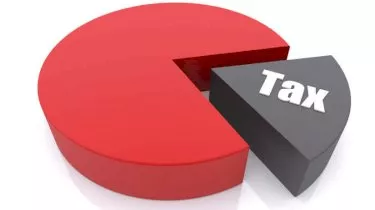Save
The 5 tax deductions office workers need to know about
Working professionals might not be getting all they deserve when tax time rolls around, a tax agent has said, and taxpayers should know what they can claim.
The 5 tax deductions office workers need to know about
Working professionals might not be getting all they deserve when tax time rolls around, a tax agent has said, and taxpayers should know what they can claim.

Australian office workers may not realise it, but they are entitled to claim tax deductions for certain work-related expenses, a tax agent has said.
Liz Russell, senior tax agent at etax, outlined the expenses you can claim as deductions, which can boost your tax refund.
1. Car expenses and travel costs
Ms Russell said workers “may be surprised” to learn they can claim travel costs associated with work-related activities.

“While this doesn’t include the cost of travelling to and from work, maybe you’ve had to deliver or pick up items from another office or a warehouse, or perhaps you’ve been asked to run errands to prepare for a work-related meeting or event,” she said.
As long as the payment came out of your own pocket, you can claim tax deductions if such instances apply to you, regardless of whether you used your own vehicle or public transport (bus, trains, taxi) to complete the required tasks. This can also apply on bridge and road toll fees.
2. Buying office tools or work-related items
This type of spending can add up, Ms Russell noted, pointing out that money spent on a workbag for a laptop or tablet can “generally be claimed”.
“Many office workers also need to purchase their own stationery or notebooks to jot down their to-do list. These items can also be claimed at tax time,” she said. Other tax-deductible work-related tools may include computer accessories (mouses, keyboards, headphones), new laptops or tablets, including their repair costs.
However, it is important to note that if your employer reimbursed the amount spent on such work-related tools and supplies, you cannot claim for a tax deduction. You can only claim for the amount that came out of your own pocket.
3. Professional development
If you are the type of employee who always aims to secure professional development, particularly one who engages in self-education or job-related training, you can use it to claim a tax deduction.
However, self-education expenses can only be claimed if you’re gaining a formal qualification for your actual role.
“That means you can’t claim a fashion design course if you work as an admin right now,” Ms Russell said.
Expenses that you can claim as deductions for this category include course fees, travel costs, accommodation costs and equipment/supplies purchased for the completion of the course (including manuals and other course-related materials).
4. Do you have a home office?
If your employer offers work from home arrangements that you use, then you may be able to claim home office expenses.
For example, you may be eligible to claim heating, phone or equipment expenses.
“But you need to either record how often you use the space for at least four weeks to create what’s called an ‘established pattern of use’ or charge your use at a rate of 45 cents per hour,” Ms Russell explained.
“It’s also important to remember that checking your emails in the evening doesn’t count as working from home – at least, not to the ATO. And if you work in the living room where other people watch the television, you can’t claim running expenses for that space.”
Being wary of what you claim as home office expenses is critical as the ATO conducts investigations for certain cases. Dishonesty or inaccuracy in your claims might get you in trouble with the ATO.
5. Other common deductions
You may also be able to claim the work-related portion of personal mobile phone costs or subscriptions to job-related journals and income-protection premiums outside of super.
In claiming all your tax deductions, the golden rule is to properly record these expenses, including taking a photo of all your receipts.
It’s important to keep in mind as well that if your employer reimbursed the exact amount for your work expenses (either before or after you incurred them), the ATO will not consider it as income in your tax returns.
However, if your employer reimbursed only a portion of your work-related expenses, you can still claim a deduction for every amount that you have spent using your own money. Just make sure to always be honest as the ATO will get in touch with your employer if they find any of your claims questionable.

Tax saving
$20,000 instant asset write-off extension welcomed, but calls for broader support grow
The Australian government's decision to extend the $20,000 instant asset write-off into the next financial year has been met with approval from business leaders. However, there are growing calls for ...Read more

Tax saving
The downsizer dividend: How targeted tax levers could unlock housing supply in Australia
A call by Raine & Horne to incentivise seniors to move to smaller homes has kicked off a wider policy conversation that reaches well beyond real estate. If designed well, a targeted package could ...Read more

Tax saving
Raine & Horne's bold move could unlock housing supply but what are the hidden risks
Raine & Horne’s call for targeted tax incentives to encourage empty nesters to ‘rightsize’ isn’t just another sector wish list; it’s a potential lever to free up family homes, ease rental ...Read more

Tax saving
From annual check-ups to always‑on: how modern portfolio reviews unlock after‑tax alpha
The era of once‑a‑year portfolio check‑ins is over. Continuous, tech‑enabled reviews now drive returns through tax efficiency, risk control and behavioural discipline—especially in a high‑rate ...Read more

Tax saving
Navigating tax laws for capital gains in 2023
The landscape of Australian tax laws surrounding capital gains is ever-changing, with 2023 being no exception. Read more

Tax saving
What you need to know about the tax implications of crypto
One million Aussies are now invested in crypto, but many have not thought about how these investments will affect them at tax time. Read more

Tax saving
Welfare overhaul could give recipients a leg-up
Australia’s Centrelink recipients who’ve been doing it tough are in for a potentially easier time if the federal government pursues ambitious reforms that could provide sturdier safety nets. Read more

Tax saving
Students should think twice before tapping into their super
Former students might want to think carefully before they look to take advantage of the federal government’s biggest first home buyer incentive. Read more

Tax saving
$20,000 instant asset write-off extension welcomed, but calls for broader support grow
The Australian government's decision to extend the $20,000 instant asset write-off into the next financial year has been met with approval from business leaders. However, there are growing calls for ...Read more

Tax saving
The downsizer dividend: How targeted tax levers could unlock housing supply in Australia
A call by Raine & Horne to incentivise seniors to move to smaller homes has kicked off a wider policy conversation that reaches well beyond real estate. If designed well, a targeted package could ...Read more

Tax saving
Raine & Horne's bold move could unlock housing supply but what are the hidden risks
Raine & Horne’s call for targeted tax incentives to encourage empty nesters to ‘rightsize’ isn’t just another sector wish list; it’s a potential lever to free up family homes, ease rental ...Read more

Tax saving
From annual check-ups to always‑on: how modern portfolio reviews unlock after‑tax alpha
The era of once‑a‑year portfolio check‑ins is over. Continuous, tech‑enabled reviews now drive returns through tax efficiency, risk control and behavioural discipline—especially in a high‑rate ...Read more

Tax saving
Navigating tax laws for capital gains in 2023
The landscape of Australian tax laws surrounding capital gains is ever-changing, with 2023 being no exception. Read more

Tax saving
What you need to know about the tax implications of crypto
One million Aussies are now invested in crypto, but many have not thought about how these investments will affect them at tax time. Read more

Tax saving
Welfare overhaul could give recipients a leg-up
Australia’s Centrelink recipients who’ve been doing it tough are in for a potentially easier time if the federal government pursues ambitious reforms that could provide sturdier safety nets. Read more

Tax saving
Students should think twice before tapping into their super
Former students might want to think carefully before they look to take advantage of the federal government’s biggest first home buyer incentive. Read more













